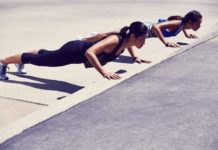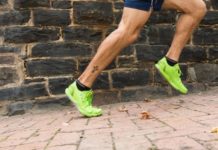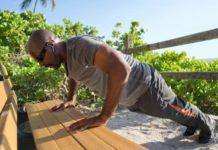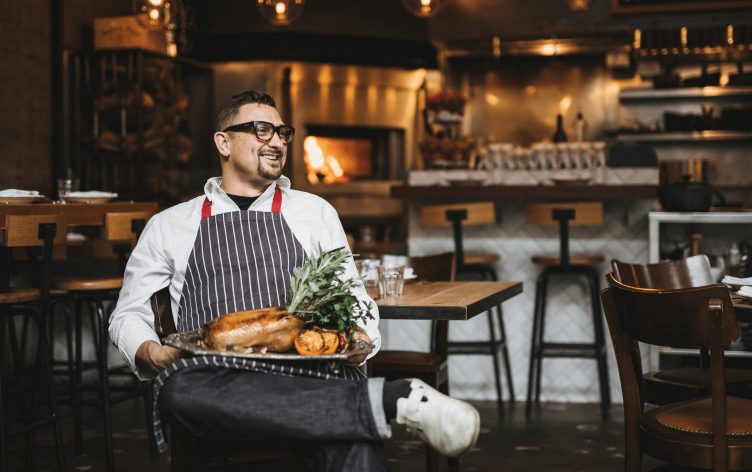
Chef, Cyclist and Carnivore Chris Cosentino on Healthy Balance
I first met chef Chris Cosentino riding bicycles through strawberry fields in Carmel Valley for Chefs Cycle. It was a brutally hot day and the heat radiating off the berries created an undeniable, overwhelming sweet smell as we spun. The heat also made the grassy, manure smell difficult to ignore. But Chris only acknowledged the berries; “They’re amazing!” he declared.
Life for Chris Cosentino is pretty simple, but it’s far from easy — and he’s OK with that. Winner of “Top Chef Masters,” cookbook author and chef and owner of restaurants in San Francisco, Napa and Portland, Cosentino is no stranger to hard work. There are things you just “do.” You move forward with each day in a simple way, approaching ingredients with respect and being OK with the idea that sometimes you might suffer a bit, but you always wear a smile anyway.
His experiences as a chef, and as an avid cyclist, taught him to be comfortable in the discomfort. (Case in point: When you’re sweating buckets and covered with dust on the 100th mile of the day, you focus on the berries — not the poop smell. Be comfortable with the less comfortable and wear that smile. Make that work yours.)
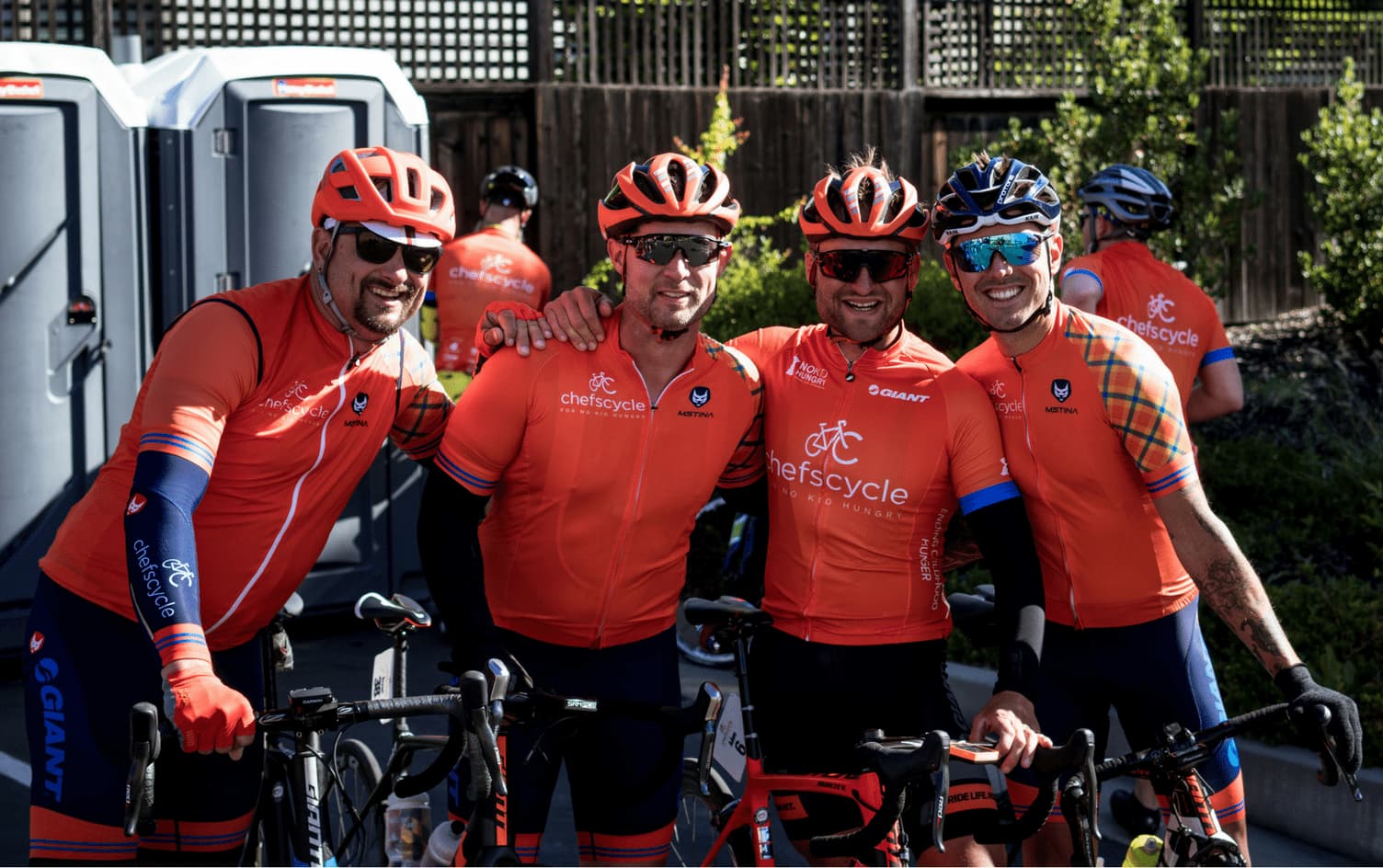
Cosentino has become a prominent celebrity chef less for his ability to smell berries and more for his pioneering approach to offal, or nose-to-tail eating. Although his San Francisco restaurant, Cockscomb, reflects his international acclaim for creative and bold use of organ meats and whole animals, the underlying feeling of Cosentino’s food and work is passion, play and pushing boundaries.
In a previous life, he was a 24-hour single-speed mountain bike racer — easily one of the most grueling disciplines in cycling — and his bike taught him how to focus, feel and create his own path. Now, he returns to riding in a big way — for himself, and to show strong support for No Kid Hungry with Chefs Cycle.
Here, he shares how sport, wellness and the intense lifestyle of a restaurant chef come together for him and how he prioritizes his health for the benefit of his food — and all of those who eat it!
Q: At what point in time did cycling and food collide for you?
Cosentino: Cycling and food collided when I started cooking. I was cooking first and then I was riding. I blew out my knee in culinary school and couldn’t move my knee laterally … I started riding so I could walk again. The fishing captain I was working with was also my riding partner. He really pushed me to get healthy. We would work on the boat, do a monster mountain bike ride, and then we’d go back to the house and cook. It was a routine that just made sense for us.
Q: What was the most recent turning point that brought you back and why are you here to stay?
Cosentino: When I stopped racing I quit riding cold turkey and rarely touched the bike; work became my priority. It took my wife and a few friends prodding me to realize that “all work and no play made Chris a dull boy.” Returning to riding has given me balance again. I have more clarity at work and at home. Finding that balance again allowed me to prioritize work, but in a different light.
Cycling can be a way of life — I can’t run — but riding I can do until I’m 90. It works with who I am, with what I am; it’s a safe, quiet space for me. In the kitchen, we have the propensity to suffer a lot but the suffering we do on our bike is fun. It pushes us to be better people just as we are in the kitchen.
Q: What’s your riding philosophy?
Cosentino: Fun. First. Everyone can get a coach and train, but if I’m not having fun I just don’t want to ride. Recently, my fitness is better working with a coach … I’m more consistent. Being more fit means having more fun. Suffering less. I love to suffer a little bit — getting into that brain place where you’re uncomfortable there yet comfortable. I raced 24-hour solos for so long because I was requiring myself to live in an uncomfortable zone. Riding now is how I practice living in the uncomfortable zone.
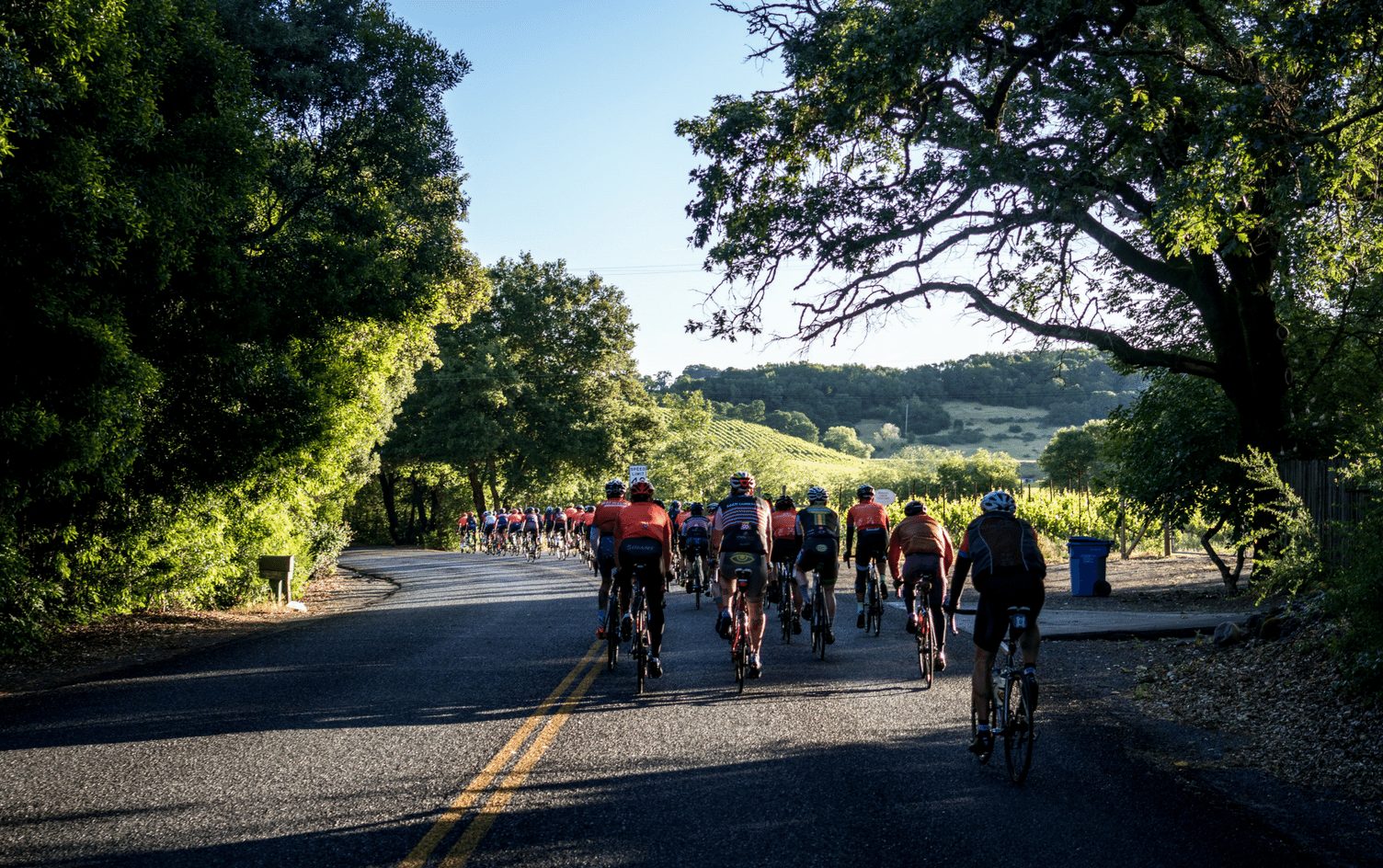
Q: What do you love most now about cycling?
Cosentino: Cycling is so freeing and takes you places you take for granted every day. And, a bit of suffering creates clarity by pushing you into another place. You learn how resilient you are and how you can overcome so many things — it’s easier to let the little stuff roll off your back and to take the big stuff in stride.
Q: What about the pursuit of wellness is hardest for you? What’s easiest?
Cosentino: The hardest part about striving for balance (professionally and personally, physically and creatively) is just making the time. There are always lots of things going on in my life, not to mention crazy hours — and there’s lots of recipe development, which means lots of tasting.
The easiest part is reaping the rewards. When I see and feel the results, it’s easy to want to make the space; I feel so much better in the restaurant and amidst the chaos when I get out for a ride, and I love seeing how my fitness progresses when I make the time. It’s a tremendous reward. Making healthier choices — minding the foods I eat, avoiding alcohol, making time to exercise — changes everything, and I feel more focused and naturally creative. It’s a total game changer. After a big ride, I do menu development and my senses are heightened and I’m more focused.
Q: You always seem to have two armfuls of delicious projects spinning at the same time. What are you working on now? How does training and riding fit in?
Cosentino: My favorite projects lately are my new energy bar company called Pavé, and I’m highly involved with Chefs Cycle for No Kid Hungry — and I have a few more fun surprises up my sleeve. Finding the time to train isn’t easy, but I have a coach who gives me guidelines, and I do the best I can with my time to follow them. Typically, after getting my son ready for school and making his lunch and breakfast, I try to get a hour on the trainer or a ride in the real world. Then, I head to work for the day. My days are pretty long; I usually get home by midnight at the earliest.
Q: What is your pre-, during- and post-ride routine? Any diets you follow?
Cosentino: I like to have oatmeal with almond butter and dried fruit and an Americano. On the bike, I eat my Pavé Bars; they vary from flavor to flavor but they’re easy to digest. They contain fruits, nuts and some chocolate, as well, so they’re delicious, too. After a ride, I drink water, have a banana and a protein, either an egg or some nuts, like cashews.
I don’t follow a strict diet, but I don’t eat processed foods and I haven’t had soda for 20 years, I really don’t have a diet. I just try to eat whole foods and be smart and balanced. The big thing is don’t overindulge. Even if it’s so delicious, teach yourself to know when to stop.
Q: You’re very involved with No Kid Hungry and Chefs Cycle, tell us what this cause means to you.
Cosentino: As a chef, my job is to feed people in a way that creates comforting taste memories. As Americans, so many of the taste memories that comfort us are formed in our childhood: grandma’s cooking, mom’s baking, dad’s grilling, etc. So, the idea of children not having a meal to start the day just isn’t OK with me. As a society, we have so much access to nutritious food, and as a chef, I have exceptional access to nutritious food … through Chefs Cycle I’m able to use my life as a cyclist to make a positive contribution, to make an impact. I will never cure cancer or solve the world’s problems, but one of these kids will and I like to think that a healthy breakfast gives them a fighting chance to realize their own power.
READ MORE > NYC CHEF SEAMUS MULLEN ON FOOD, RA AND GETTING HEALTHY
Q: In a restaurant kitchen, there isn’t always time to have proper meals. How do you navigate this? Does your cycling impact the way you think of food or cook in this way?
Cosentino: Sitting down to a meal doesn’t happen the same way it does for those who live and work outside of restaurants. I’m tasting all day to make sure dishes are seasoned properly, so I treat eating meals as if I’m on a big ride; having lots of small bites. I sit and eat staff meal with the whole team two times a day. We always have a salad and lots of veggies and protein. It’s about moderation, thinking about what I’m eating and trying to make best choices when I can.


























